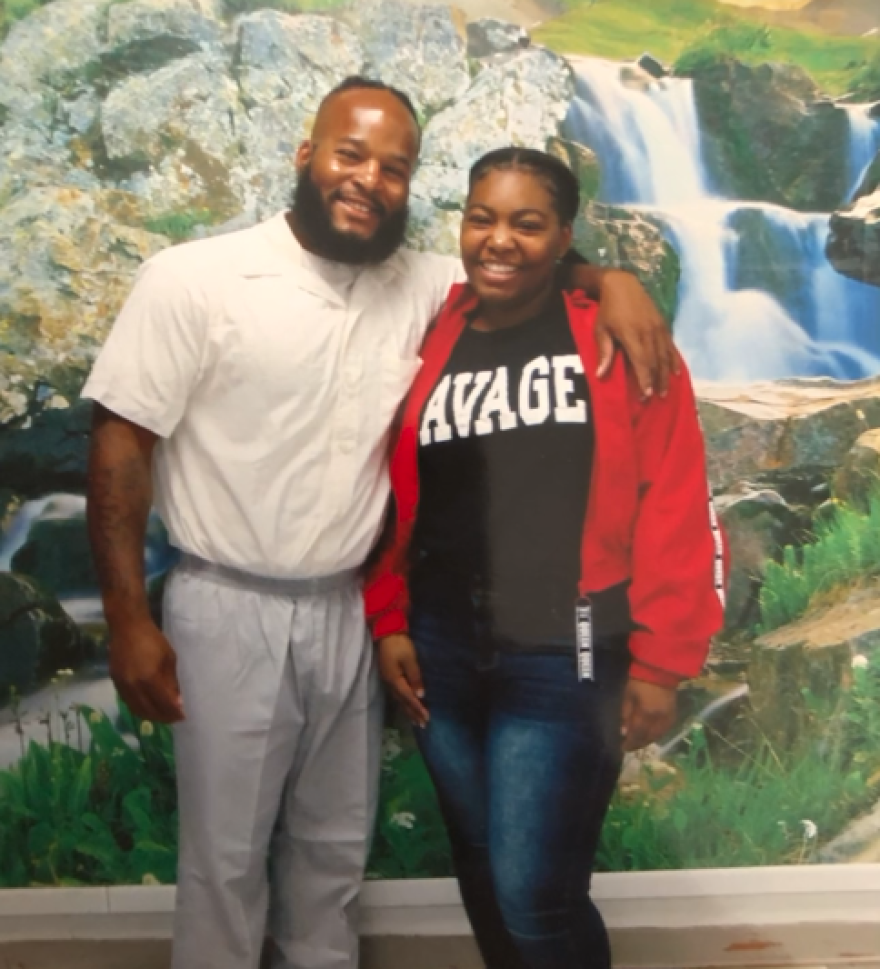The Missouri Supreme Court will hear arguments Monday afternoon on whether to stay the execution of Kevin Johnson Jr., who was sentenced to death in 2007 for the slaying of a Kirkwood, Missouri, police officer.
A special prosecutor is urging the court to halt Tuesday's planned execution after he conducted an extensive investigation that concluded the state’s handling of death-eligible prosecutions was rife with pervasive racial bias.
The special prosecutor, Kansas City attorney E.E. Keenan, was appointed in October by the St. Louis County Prosecuting Attorney to look into the case.
On Nov. 15, Keenan filed a motion to set aside Johnson’s conviction after finding that, during the tenure of former St. Louis County Prosecuting Attorney Robert McCulloch, his office had sought the death penalty in five police-officer killings against four Black defendants but not against the only white defendant.
McCulloch was the St. Louis County Prosecuting Attorney from 1991 until 2019, winning reelection six times before losing to challenger Wesley Bell in 2018. McCulloch’s father was a K-9 police officer who was killed in the line of duty when McCulloch was 12 years old.
In urging that Johnson’s execution be stayed, Keenan also cited a study by a University of North Carolina professor that examined 408 St. Louis County death-eligible homicide prosecutions. The study showed that McCulloch’s office had “largely reserved the death penalty for defendants whose victims were white” when deciding whether to charge first-degree murder and to seek the death penalty.

Johnson, who is Black, was charged with first-degree murder in the 2005 killing of 43-year-old Sgt. William McEntee, who was white. Johnson was 19 years old at the time.
McEntee was on patrol in Kirkwood’s Meacham Park neighborhood and investigating a fireworks disturbance when Johnson approached the passenger side of his vehicle, fired five shots and walked away. McEntee was able to drive off about 200 feet before his car crashed. After he managed to crawl out, Johnson shot him two more times.
Earlier that day, Johnson’s 12-year-old brother had collapsed and died of a congenital heart condition.
In Johnson’s first trial, the jury — which had six white members and six Black — ended deadlocked 10-2 in favor of a conviction for the lesser offense of second-degree murder. A second jury — which only had three Black members — convicted Johnson of first-degree murder and sentenced him to death in 2007.
A daughter denied
On Friday, a federal judge denied the request of Johnson's 19-year-old daughter, Khorry Ramey, that she be allowed to attend her father's execution.
“I’m heartbroken that I won’t be able to be with my dad in his last moments,” Ramey said in a statement after the ruling. “My dad is the most important person in my life. He has been there for me my whole life, even though he’s been incarcerated. He is a good father, the only parent I have left. He has worked very hard to rehabilitate himself in prison. I pray that Gov. Parson will give my dad clemency.”
Ramey had argued that Missouri’s law requiring execution witnesses to be at least 21 years old is irrational, and violated her First Amendment right to free association and her right to equal protection under the law.
But U.S. District Judge Brian Wimes ruled that the state has a rational basis for the age restriction, including preventing young people from witnessing death and to maintain the solemnity and decorum of the execution.
Ramey was 2 years old when her father, who is now 37, was charged in the case. At the age of 4, Ramey’s mother was murdered in front of her by her ex-boyfriend, and since then Johnson has been “my only parent for almost all of my life,” she said in a statement read to reporters on a Zoom call on Friday.
Ramey read the first few sentences of her statement before asking Michelle Smith, co-director of Missourians for Alternatives to the Death Penalty, to read the remainder for her.
Ramey, w ho is studying to be a nurse, noted that her father was sentenced to death for a crime he committed when he was 19 — yet Missouri was seeking to bar her from witnessing his execution because she is 19.
Ramey said she developed a close bond with her father, visiting him frequently in prison, and regularly corresponding with him and speaking with him on the phone.
She said Johnson arranged to have an academic liaison with her school so it could update him on her grades and performance.
“There is not anyone else in my life who understands me the way that my father does,” Ramey said. “I gave birth to a baby son in September of 2022, and my dad is my biggest source of support, advice and love as I navigate adjusting to being a new mom.”
"We are extremely disappointed in the decision upholding this irrational and illogical law, which only serves to gratuitously punish Ms. Ramey," said Corene Kendrick, deputy director of the American Civil Liberties Union National Prison Project and one of Ramey's lawyers. “Compounding her pain and grief by barring her from being with her father will do nothing to provide closure or healing to anyone else. The State of Missouri can still do right by Ms. Ramey if the Governor grants her father clemency. If 19 is not old enough to witness an execution, then the state should spare Mr. Johnson’s life for what he did when he was 19.”
Missouri Gov. Mike Parson has rejected requests to commute Johnson’s death sentence to life in prison without the possibility of parole.


